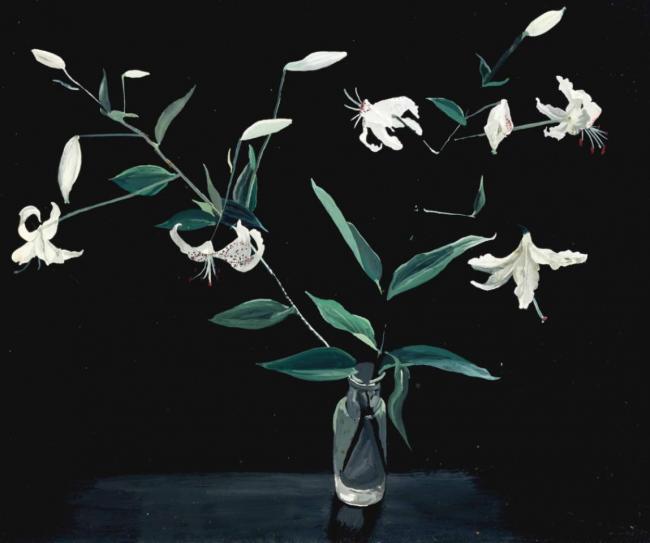1.
The proverbial age in which
plaster saints lay on the sidewalks.
All fragments are collecting dust.
Poetry is the art of collecting dust.
Are images any better than the dust that collects
on the tabletop?
On the tightly packed pages of a book bound
to the nightstand?
Dust collects everything
hoards dandruff as poetry
each letter a little speck of
dander snow, the pecking order of
the tiny termites, the pecking order
of dust mites.
Huge garbage trucks collect the dust
of humanity, dumping trucks drive
far away into the night and discharge their cargo
of nothingness, nothingness that was once
something, nothingness that was once things
things that were nothing unbeknownst to
the things themselves. Thingies hanging by strings
from nothing to nothing.
Fallen things in the dustbin
of unusual sidewalks and plastic fins
of recycled beings awaiting
the nocturnal trucks that will take them away
to the insulated prison of the things that have been.
Has been/ Half being
Now they create a scene in the outskirts of glint
and the waste is a wasting syndrome that affects
the way of all things.
2.
¡Qué rico el olvido!
Sensación deliciosa de deshacernos
y volvernos polvo. En las fotografías
los marcos permanecen pero las imágenes se deshacen.
En la casa vacía los compradores llegan
para adquirir un trozo
de lo que fue pasado
pero el dueño de todo se ha ganado el olvido.
Que terrible es Hollywood, esa tumba del todo
la fría cripta del olvido
donde nada perece, donde todo aún crece
donde el mundo es el mundo
aunque muera dos veces
aunque nazca de nuevo.
¡Oh, qué rico el olvido! Terminar en la tumba
de los cielos, celestial catacumba
donde entierran los huesos imaginarios
los huesos y los sesos multitudinarios
que merecen perderse en las huestes del polvo.
Coleccionando polvo
los compradores mecen entre sus dedos ávidos
un par de anteojos
que sobre otras narices cabalgó
mil libros desleídos
el ramo de flores que sirvió de aguafiestas
ahora comprado en la venta de lo perdido
la que solo da pérdidas y olvidos.
¡Qué rico, pero qué rico es el olvido!
Néstor Díaz de Villegas nació en Cumanayagua, en 1956. Sus últimos libros de poemas publicados son Che en Miami (Aduana Vieja, Valencia, 2012), Palavras à tribo/Palabras a la tribu (Lumme Editor, Sao Paulo, 2014). Ha reunido su poesía en Buscar la lengua. Poesía reunida 1975-2015 (Bokeh, Leiden, 2015). Vintage Español acaba de publicar De donde son los gusanos. Crónica de un regreso a Cuba después de 37 años de exilio.




